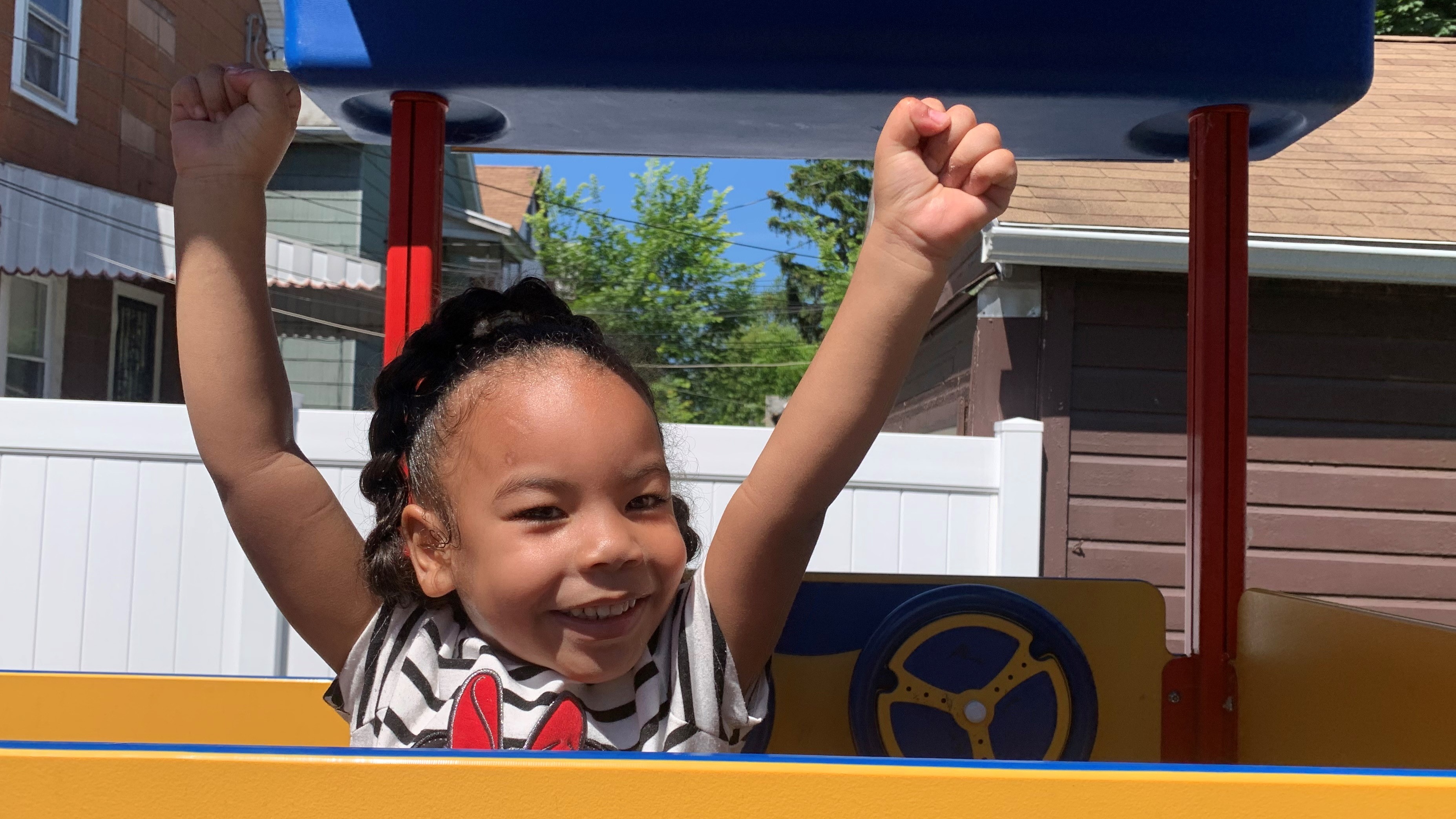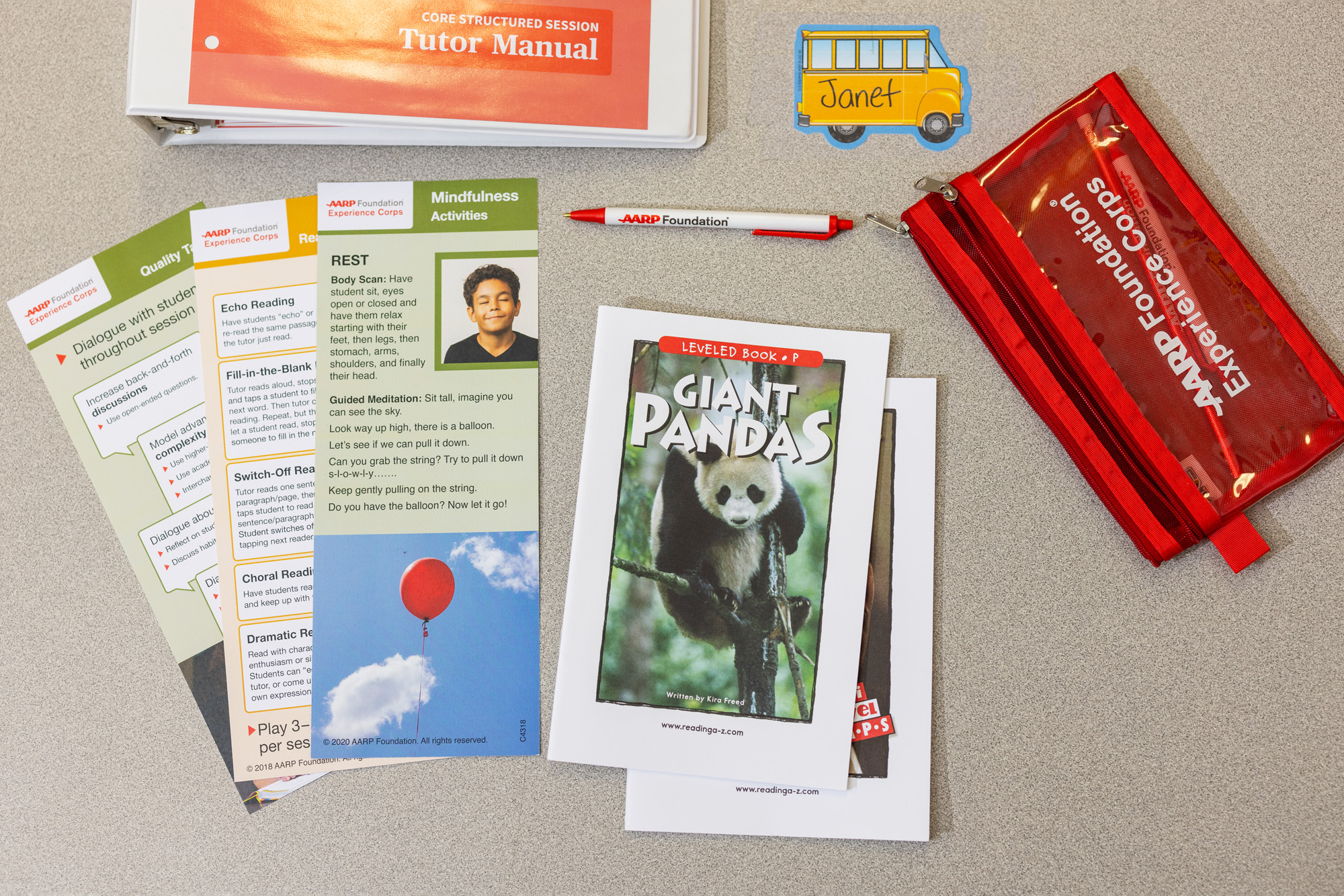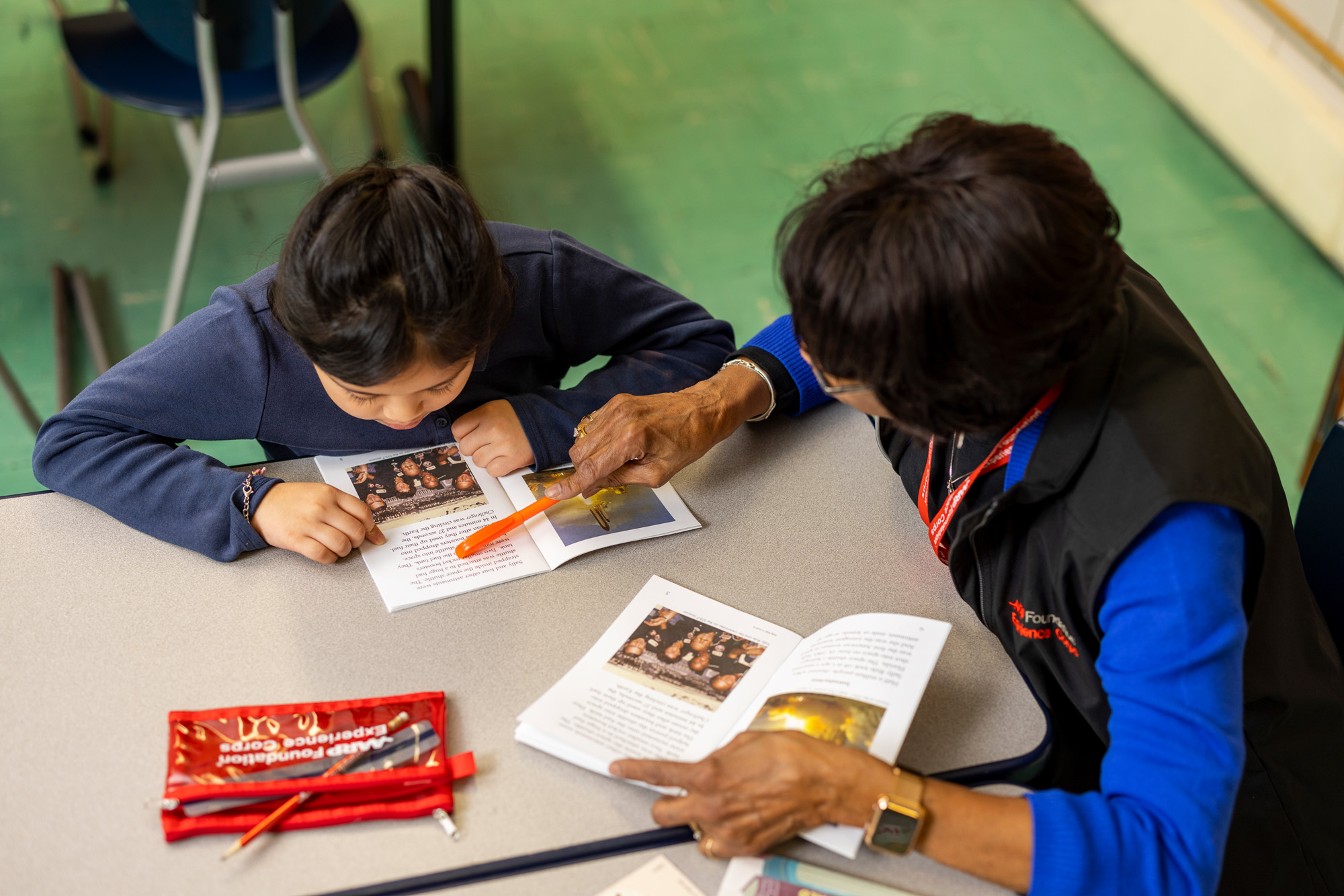Read to Succeed Buffalo CARE Child Care
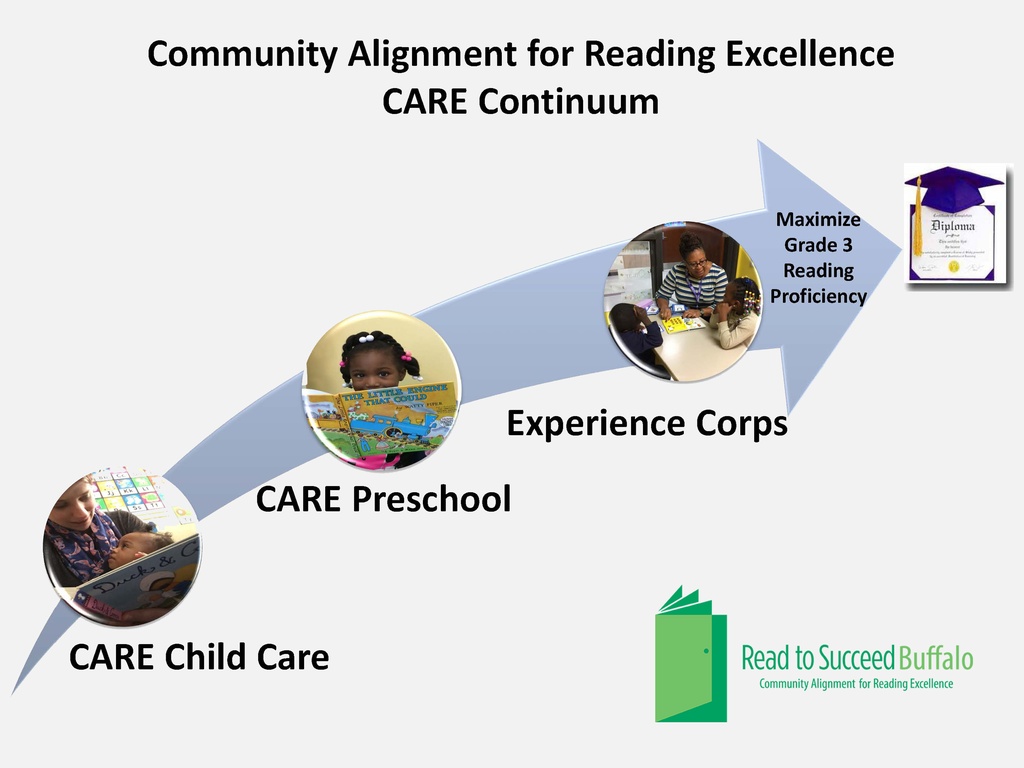
CARE Child Care is the foundation of this RTSB continuum of high quality language and literacy resources. CARE Child Care is a quality improvement literacy infusion program for licensed child care providers operating in the City of Buffalo. CARE partners with these professionals, bridging the gap between learning theory and practice, ensuring that the children in RTSB participating sites are receiving the highest quality of care available.
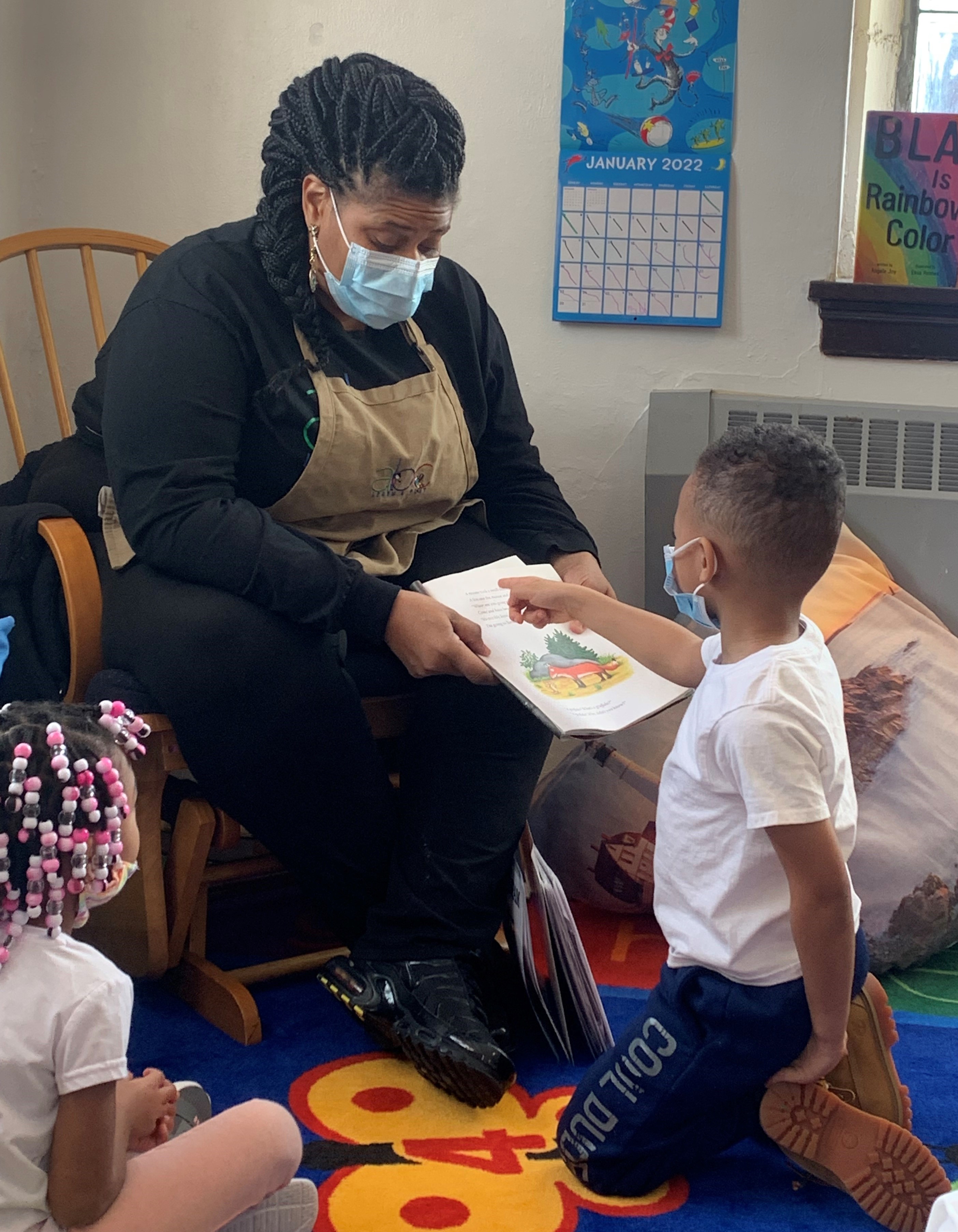 CARE improves child care and classroom quality by working with providers/teachers in their program over two years. With the support of RTSB's early literacy intervention specialists, CARE Child Care integrates the five steps of early literacy growth - language and vocabulary, comprehension, letter knowledge, sound and print awareness - in child care sites and Head Start programs.
CARE improves child care and classroom quality by working with providers/teachers in their program over two years. With the support of RTSB's early literacy intervention specialists, CARE Child Care integrates the five steps of early literacy growth - language and vocabulary, comprehension, letter knowledge, sound and print awareness - in child care sites and Head Start programs.
CARE Child Care scores a child care program's quality improvement efforts through the use of Environment Rating Scale (ERS) tools. ERS tools create quality improvement plans for the school year that are specific to the needs of the caregiver and the children in their care. The tool measures items in child care such as: space and furnishings, personal care routines, listening and talking, activities, interaction, program structure, parents and provider/staff.
CARE Child Care also uses age-appropriate screening measures to ensure that infants, toddlers and preschoolers' communication, problem solving, personal social and motor skills are on track. RTSB's goal, in partnership with knowledgeable and caring child care professionals, is to make sure that all children benefit from the best possible care as early as possible!
CARE Child Care, funded by a grant from the United Way of Buffalo & Erie County, promotes the utilization of CARE graduate sites including:
- ABC Learn & Play 2, Tiffany Malone, Owner
- Antoinette's Angels Quality Child Care, Liahna Davis, Director
- Appleseeds 123 Day Care, Nichole Minter, Owner
- Barbara's Babies Day Care, Barbara Greer, Director
-
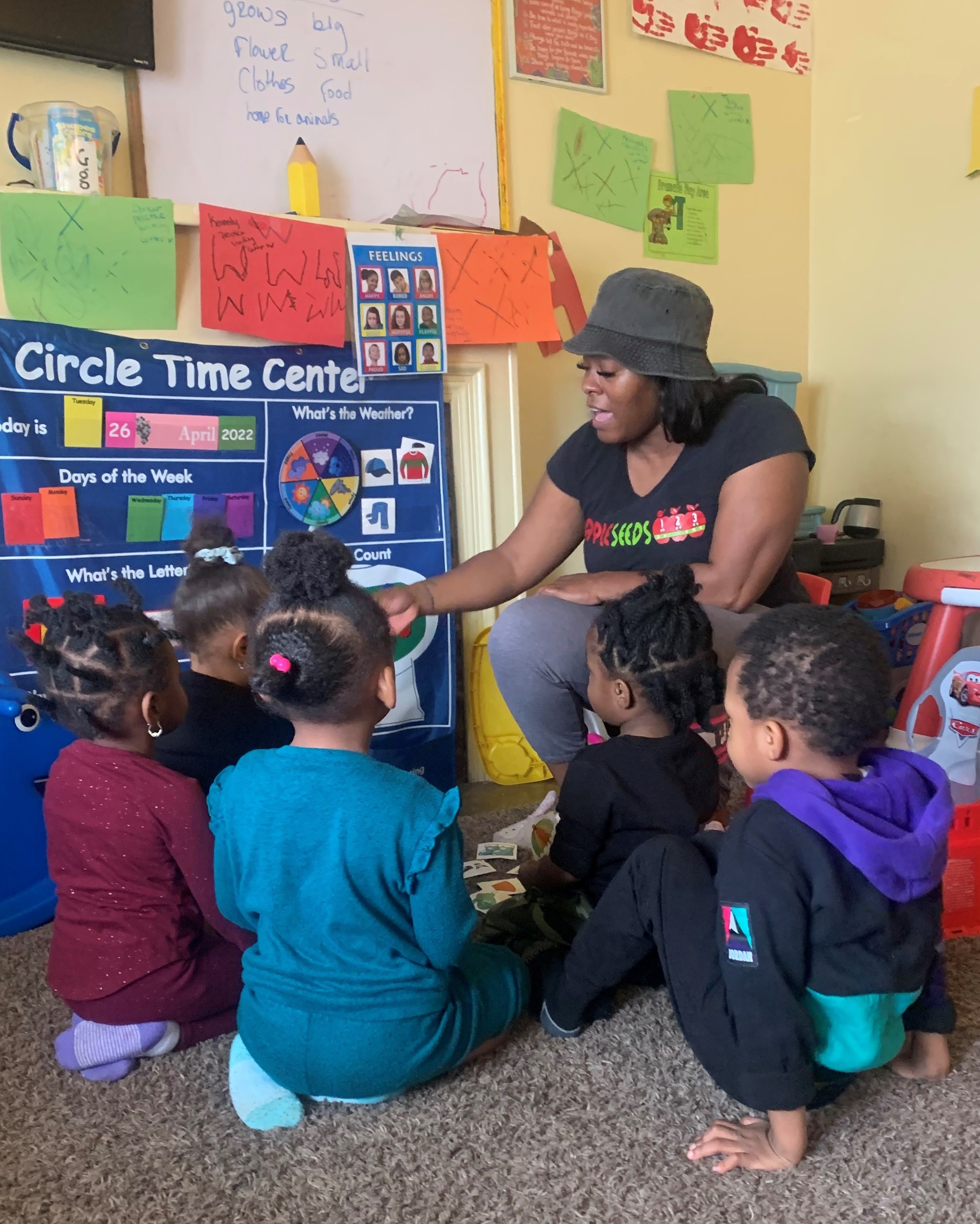 Brinson's Family Day Care, Tricia Brinson, Director
Brinson's Family Day Care, Tricia Brinson, Director
- C'mon Let's Play!, Yolanda Rozier-Sayles, Director
- Christine's Educational Child Care, Christine Elliott, Director
- Core of Learning, Latricia Henry, Director
- Colorful World, Valarie Bates, Director
- Cyn's Heavenly Angels, Cynthia M. Russell, Director
- Gingerbread House, Latasha Simpson, Owner
- God's Design, Beatrice Nix, Director
- Grandma's House, Stefanie Calloway, Director
- Growing in Grace Child Care, JoAnn Rhines, Director
- Growing in Grace 2, Kandis Y. Rhines, Director
- Home Away From Home Day Care, Casandra Rush, Director
- Jayden's Playhouse, Tanya Calloway, Director
- Kids Time Group Family Day Care, Debbie Ransom, Director
- Lana's Land of Learning, Yolanda Beaner, Director
- Ms. Dee's GFCCC, Dionne Norman, Director
- Ms. Lisa's, Lisa Chambers, Director
- Miracles Day Care, Susan Birl, Director
- My Baby's Day Care Inc., Darniece Faison Douglas, Director
- My Precious Angels Child Care, Felicia Doctor, Director
- Nurah's Nook, Barbara Dixon, Director
- Puddle Jumpers, Tanya Calloway, Owner
- Scott's Garden Child Care, Cynthia Scott, Director
- Something Special, Renee Benning, Director
- Starlight Family Daycare, Codelia Coble, Director
- Up, Up & Away, Catrice Huff, Director
Current participating sites include:
- Appleseeds 123 Inc., Nicole Minter, Owner
- Christine's Child Care, Christine Ervin, Owner
- The House of Learning Inc., Jasmin Easley, Owner
- Lighthouse Center Inc., Susan Boyd, Director
- Puddle Jumpers, Tanya Calloway, Owner
We are Hiring 2024 Early Literacy Intervention Specialist! Apply Today!
CARE Child Care
Embedded support - work directly with providers in the context of the child care programs. Conduct fidelity observations to support the enhancement of literacy instruction and ensure it is being conducted consistently, accurately, and as intended. Use the Environment Rating Scales to assess interactions and the materials, activities and features that support interactions.
Assessments and Data - support the administration and analysis of child screening Ages and Stages Questionnaires® (ASQ-3) and other assessment data. Conduct progress monitoring to quantify students' response to instruction and evaluate the effectiveness of instruction.
Planning and Reflection - time allocated to discuss observation data, analyze and interpret child data and plan for intentional instruction to meet RTSB program, child care program, and individual targets.
Professional Development - support the continuous process of acquiring new knowledge and skills. Design and facilitate professional development modules to support providers.
Results
- ASQ-3™ is a reliable and accurate way to identify children who are in need of further assessment. In many cases, when delays are identified early, appropriate supports or interventions can be provided to a child to ensure they have the opportunity to reach their full potential.
- There are 21 age specific ASQ Screens developed specifically for children between 1 month and 66 months of age.
- Each questionnaire contains developmental items organized into five areas: Communication, Gross Motor, Fine Motor, Problem Solving and Personal-Social.
- The Environment Rating Scales (ERS) broadly define the environment focusing not only on the arrangement of space, but also including the materials and activities offered, interactions that occur, routines, and activities.
- In order to provide care and education that will permit children to experience a high quality of life while helping them develop their abilities, a quality program must provide for the three basic needs all children have: safety, positive relationships, and stimulating language and learning from appropriate educational experiences. Quality care takes all three working together. These are the key components that are included in the environment rating scales.
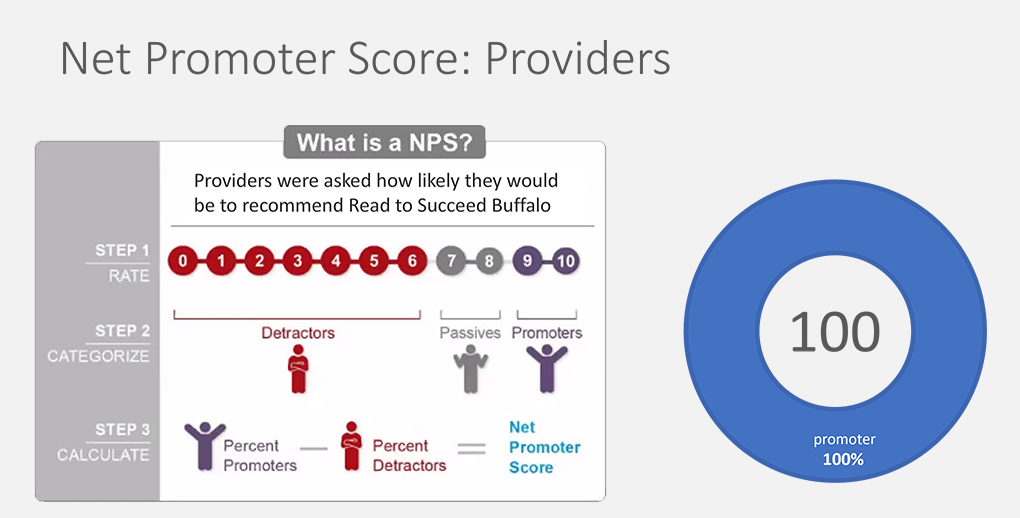
NPS – Net Promoter Score:
- Net promoter score (NPS) is a widely used market research metric that is based on a single survey question asking respondents to rate the likelihood that they would recommend a company, product, or a service to a friend or colleague. To determine NPS respondents are dividing into categories based on a 10 point scale indicating whether or not they would recommend a product or service.
- Respondents are then subdivided into "promoters" who provide ratings of 9 or 10, "passives" who provide ratings of 7 or 8, and "detractors" who provide ratings of 6 or lower. The net promoter score results from a calculation that involves subtracting the percentage of detractors from the percentage of promoters collected by the survey.
- The NPS is typically interpreted and used as an indicator of customer loyalty. NPS has been widely adopted by Fortune 500 companies and other organizations.

